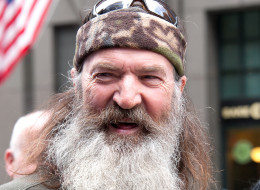Will all the folks praising the
mighty private sector have something to say about the UPS
Christmas fiasco?
It's not a good look when the company that's supposed to be putting the post office out of business can't deliver Santa's gifts on time.
Apparently, like the government, the boys with the big brown trucks didn't properly plan for the holiday spike in business.
"UPS originally expected to ship about 7.75 million packages in its air network Monday, with about 3.5 million of those sorted at Worldport, as the Louisville hub is known. The facility handles on average 1.6 million packages a day. It isn't yet known how many packages arrived at Worldport during the last minute crush, but on Christmas Eve UPS said the volume of air packages in its system had exceeded its capacity.
It is still too early to know what went wrong, UPS said, adding that the company is analyzing the situation.
Some shoppers also complained of delays with shipments handled by FedEx. A spokeswoman said FedEx "experienced no major service disruptions during this holiday season, and we experienced no major service disruptions in the week before Christmas, despite heavy volume." She said FedEx is working with customers "to address any isolated incidents."
UPS carefully plans how it will handle the holiday peak. Extra resources such as additional cargo planes had been lined up as "hot spares"—company lingo for aircraft that could be fired up quickly in case of a logistics emergency. But it ran into a confluence of factors. Retailers have been encouraging online sales, which have grown much faster than retail sales overall. And retailers likely contributed to the logjam by offering some of their best discounts late in the season in a final push for sales. Many chains dropped prices on the final Saturday before Christmas to levels below what they were offering on Black Friday, according to Simeon Siegel, an analyst with Nomura Equity Research.
That, coupled with retailers' promises of just-in-time deliveries, encouraged many shoppers to put in orders at the last minute. People buying from more than 70 retailers including Toys "R" Us Inc. and Dick's Sporting Goods Inc., whose online shipping is handled by eBay Enterprise, were able to place Web orders as late as 11 p.m. on Monday, Dec. 23, a full 24 hours later than last year.
The result was a surge in online sales shortly before Christmas. UPS had been forecasting an 8% average rise in its daily shipping volumes during the holidays. But online sales in the last weekend before Christmas jumped by 37% from the year before, according to data from IBM Digital Analytics."
This all
sounds familiar. But I am sure we won't hear talking heads pontificating about the death of the private sector in America. Rather, it's just a by- product of the capitalist system at work.
This leads me to another company in the private sector with some
holiday issues.
Forty million people had data stolen from their credit and debit cards. That is a serious invasion of our privacy. But no outcry from the same folks who are worried about the government having our information and tapping into our phone lines and computers.
"The retailer was alerted its systems might have been compromised by credit card processors who had noticed a surge in fraudulent transactions involving credit cards that had been used at Target, according to the source, who was not authorized to discuss the matter.
The timing of the breach could not have been worse for Target, coming just before three of the four busiest days of what has been a bruising holiday season for retailers, with the highest level of discounting in years. Target itself last month lowered its profit forecast for the year after disappointing sales in the third quarter.
Complaints from customers began to surface on social media as they learned of it early Thursday morning.
Most of these attacks are just a cost of doing business," said Mark Rasch, a former U.S. prosecutor of cyber crimes." [Source]
"Just the cost of doing business". The people who support the NSA being all in our business would argue that this particular apparatus is in place because they have to protect the American people, and the occasional infringement on our right to privacy is just the cost of living in America.
It's not a point of view I tend to agree with, but I am all to glad to point out the double standard when it comes to how we view the government as opposed to the private sector here in America.

































